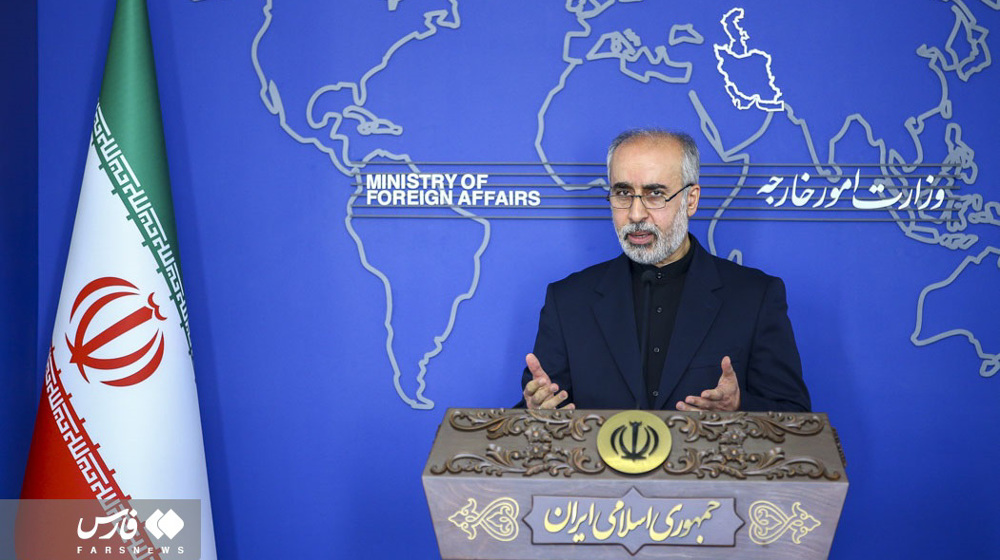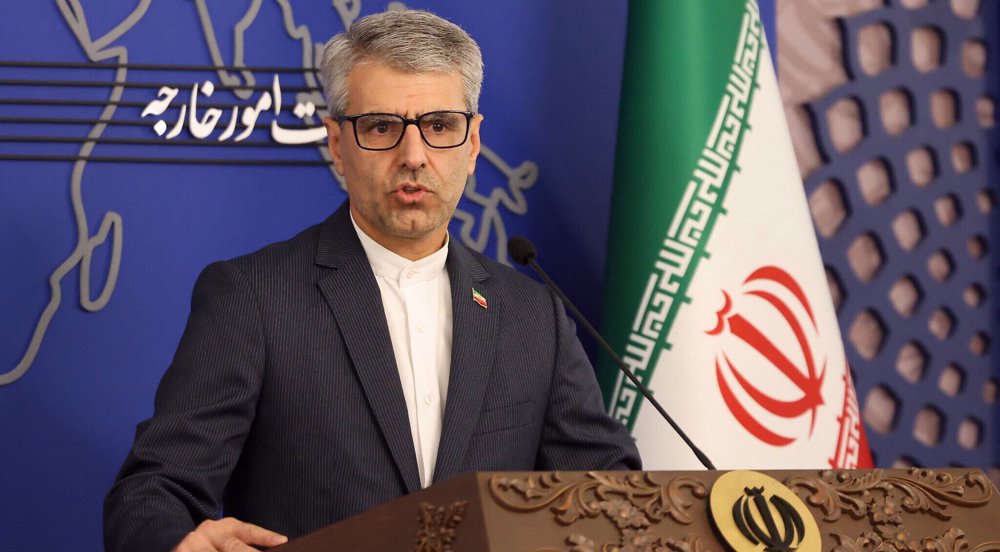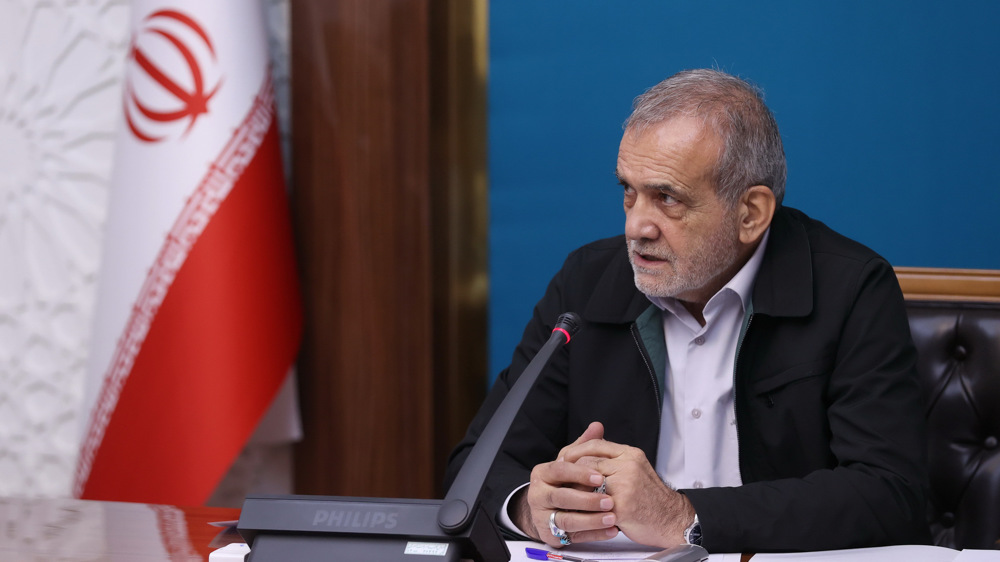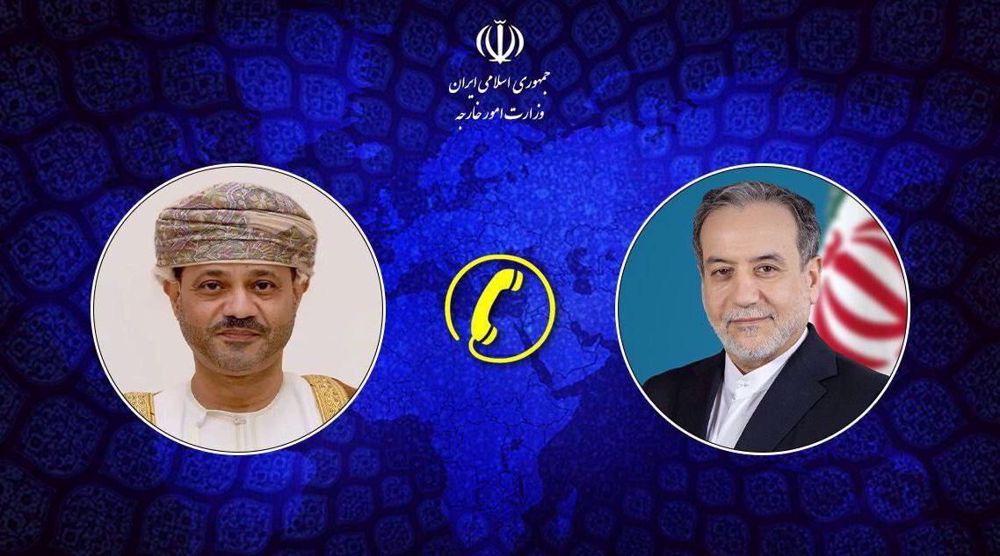Iran rejects Canada-drafted UN resolution as political exploitation of human rights
Iran has rejected a Canadian-proposed resolution approved by the United Nations General Assembly’s Third Committee on the situation of human rights in the Islamic Republic, condemning it as an example of exploiting human rights to advance political goals.
Iranian Foreign Ministry spokesman Nasser Kan’ani on Thursday said the resolution, which was drafted by Canada with the backing of some Western countries, was a mere repetition of “baseless accusations” leveled against Iran based on “misinformation” and “dishonest generalizations.”
The “one-sided” and “unrealistic” resolution thus lacks legitimacy and is categorically rejected, Kan’ani added.
“The move by the Canadian government and other supporters of the resolution is a clear example of misusing sublime concepts and values of human rights in order to advance short-sighted political goals,” he said.
“Such unconstructive measures will not only fail to help improve the human rights situation at a global level, but will lead to constant recourse to negative stereotyping and political labeling against independent countries,” he added.
Pointing to the Western countries’ attempts to spread Iranophobia and defame Iran, he said such states, which have a long record of systematic human rights violations, are not in a position to make recommendations on human rights to the Iranian government and nation.
“The Islamic Republic of Iran is based on religious democracy and has always been very serious about promoting human rights and fulfilling its [relevant] international obligations,” Kan’ani said, expressing Tehran’s readiness to “engage in dialog and constructive cooperation based on its lofty principles in order to improve the human rights position in the world.”
Such dialog should be based on “mutual respect, equality, justice and fairness,” free from political purposes, and within the framework of all legitimate international mechanisms aimed at improving and supporting human rights, the Iranian spokesperson said.
The General Assembly’s Third Committee on Wednesday approved the draft resolution titled “Situation of human rights in the Islamic Republic of Iran” by a vote of 80 in favor to 28 against, with 68 abstentions.
The draft resolution was proposed by the Canadian government over claims of a violent “crackdown” of protests in Iran, sparked by the death of Mahsa Amini, a young Iranian woman in police custody.
Since mid-September, several Iranian cities have witnessed riots, which erupted amid protests over the death of 22-year-old Amini who fainted at a police station in Tehran and was pronounced dead three days later in hospital.
Many initially blamed police for the incident, but an official report by Iran’s forensic authority concluded later that Amini’s death was caused by illness rather than alleged blows to the head or other vital body organs.
Using the protests as a cover, rioters and thugs — many of them later found to have links with foreign parties — went on a rampage, engaging in brutally attacks on security officers, vandalism, desecration of sanctities, and false-flag killings of civilians to incriminate the Iranian police.
Iran’s security apparatus clearly draws a line between peaceful protests and violent riots that threaten lives and cause harm to public and private property.
Late last month, Iran’s main intelligence bodies reported multiple aspects of the role played by the US — backed by the UK, Saudi Arabia, Israel and other allies — in devising a multi-dimensional plot for instigating riots in the Islamic Republic and directing the wave of violence.
‘Anti-Iran resolution based on flawed findings’
Zahra Ershadi, deputy permanent representative of Iran to the UN, also categorically rejected the draft resolution which has been prepared based on the incomplete report, flawed findings and biased behavior of the United Nations special rapporteur.
She said the sponsors of the resolution, who “claim to be champions of human rights in Iran, have a long record of blatant hypocrisy, double standards and instrumentalization of human rights for their agenda” and are not fit to preach.
She added that some of those who pretended to protect human rights “should be reminded of their own crimes so they do not forget their true face, including Canada, the United States, the United Kingdom, the Israeli regime and Germany.”
Ershadi emphasized that all these countries are common in brutality, callousness, arbitrary killings, genocide and ethnic cleansing.
The Iranian representative emphasized that women and girls in the country are fully aware of their rights and how to interact with the government, adding that there is no need for Western countries to advocate for them.
She called for a recorded vote.
The engineering feat behind Iran’s record gas output
VIDEO | Press TV's news headlines
Freedom of speech, right to protest under assault in UK
Border guards seize cache of weapons, ammunition near Iran-Afghanistan border
Grok to power classified programs as Musk's xAI secures deal with Pentagon
Iraqi FM tells US envoy: Government formation ‘internal matter’
Israel killed Gaza aid workers in ‘execution style’ massacre in 2025: Report
Participation shrinks at Israeli arms expo in wake of Gaza genocide: Report










 This makes it easy to access the Press TV website
This makes it easy to access the Press TV website